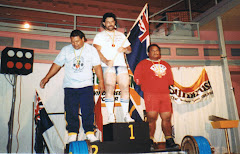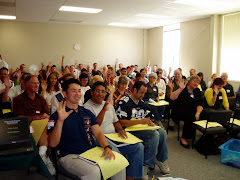I want to apologise for being a bit slow on writing this, my 1st blog for August. It's the 11th August and I haven't posted a blog to date, I'm sorry about that and plan on getting back up to speed straight away. So here goes...
What would you die for?
Your children? Your lover? Your Career? Your cat or dog? An attempt to break a world record? To save your house from burning down? Your car? To preserve your reputation?
What would you die for?
If your like most people, you wouldn't have likley, ever asked, such a question of yourself. Few people are ever put in a life or death situation and have had to decide whether they should do something which would risk their life.

The scenario I've been wanting you to consider is more the extreme end of deciding whether you live or die, yet there are daily pressures we put on ourselves, which over time, can indeed - kill us.
Stress Scale
A study of 5,000 people was undertaken to determine the level of stress people experience in 43 activities. The activities listed are ones we are faced with during the course of our lives. They retrospectively assesed their percieved level of stress of each of them and the top 14 activities I've listed below along with the score allocated to each of them. This list of stressors is known as the Holmes-Rahe Social Readjustment Rating Scale:
(They are prioritised as being the most stressful to the least stressful to deal with).
- Death of a Spouse - 100
- Divorce - 73
- Marital Separation - 65
- Imprisonment - 63
- Death of a Family Member - 63
- Personal Injury or Illness - 53
- Marriage - 50
- Fired from Your Job - 47
- Marital Reconciliation - 45
- Retirement - 45
- Change in Health of a Family Member - 44
- Pregnancy - 40
- Sexual Difficulties - 39
- Gain a New Family Member - 39
The researchers, Thomas Holmes and Richard Rahe suggest that a score of 300 or more is a strong indicator that your stress levels are too high and will have a negative impact on your health and well being. They also suggest, that a score of 150 or less means you have relatively low stress levels.
A closer look brings some interesting perspectives. How about Divorce which scored as number 2 and scored 73 points. Have you ever heard of people holding a "Happy Divorce Party"? That's right they are holding a party, celebrating that they just got divorced! How about including marital separation too? Another happy, amiable seperation! Then there are those that go to prison (#4 - 63 points) who are pleased they'll now have a roof over their head and 3 meals a day.
What I'm getting at here is stressors, are unique to each of us. What seriously stresses one person out i.e. under ground caving by 1 person vs claustrophobia experienced by another while caving. One persons joy can be anothers horror. Stress is as individual as you are.
We've all observed people getting seriously stressed out over something and stood wondering how the hell does that small thing cause so much stress! (or am I the only one who has seen this happen?). When this happens, you'll find often that the stressed person is quite vocal about what it is that stresses them out - thus the title: Stress, the NOT so silent killer.
I'm sure I'm not the only one that has worried themself sick at some stage in their life, over something. I've found myself in the past, staying awake late at night, unable to get to sleep and forgotten what I was doing, while supposedly at work during the day. My unique stressors occuping all my thoughts and draining me emotionally as each dragging minute passes by. Loss of focus, energy and at times, losing the will to go on with life. This is no joke and sadly many can be so stressed that they take their own lives or the lives of others (not good!).
I read recently that 3 people here in NZ had committed suicide because their homes had been completely ruined due to damp rot. The house had been constructed with non treated timber and as a result was rotten and unable to be repaired, so the house was worthless! I didn't see loss of your home scoring high in the Holmes-Rahe scale, yet people have taken their lives due to the complete loss of the value of their home.
Useful Stress Tips
Knowing that stress is a unique experience it'll be a good thing for you to know what you can do to minimise it. In my coaching I often come face to face with clients who are emotionally drained and stressed due to either a clash with work collegues or at home in their personal lives. It definitely can be like

unravelling a badly tangled fishing line, yet well worth it in the long run.
Here are 7 effective strategies (there are many more) you can use to lower the intensity of those things that are stressing you out:
ONE:
Write a full description (leave nothing out) of what it is exactly that is causing the stress. Include your own attitude towards the stressors as well as all of the external factors. Ask yourself "Is this really as bad as it seemed, now that I have written it out?" It's likley that you now see it for what it is (pseudo stressor) and are better able to deal with it. If so, deal with and move onto more difficult things than what was previously stressing you out. We too easily make mountains out of mole hills!
TWO:
Identify if the stress is either in the past or future. If the stress experience is in the past understand that you can not turn the clock back and change what has happened. What is done - is done! Decide what you can do today about how you will think differently about what has happened to you in the past. What happened can not change - how you think about it can.
How would you like to think about things that empowers you while also allowing you to positively learn from what happened? Should it ever happen again in the near future, how will you deal with it differently? Celebrate your learnings and focus on the present and plan for the future.
If the stressor is in the future. What the hell are you doing? It hasn't happened and you want it to be awful and that is why you are thinking terribly, to the degree that you are stressed the hell-out about something that hasn't even happened and is highly likely - not to!
Decide what the problem is that you are faced with in the near future and make an effective plan to minimise the problems that you forsee in the future. Focus on what you can do and mentally rehearse a positive outcome. That approach is way better than traumatising yourself unduly and then focus on what you need to do in the present to make the future materialise the way you want it.
THREE:
Rate the level of stress that you are currently experiencing from 1-100 (1 being very low). Decide, by writing a list, what must be done to cut it by 50%. Prioritise the list and focus on the 1 thing that will make the biggest difference immediately. Ensure that what you need to do to lower it is within your own personal power and is not reliant on other people changing 1st. Make an immediate action plan on how and when you will undertake and complete the required actions that will significantly lower the stress.
FOUR:
Make a list of activities that you can do that make you happy. They are to be activities that do not include spending money, alcohol, drugs or another person. Once you have the list (preferably 12 or more activities) work at creating a situation where you are able to string together 3 or 4 of these activities back to back.

FIVE:
Write a daily list of what you are grateful for. This is an attitude of gratitude journalling. Do it daily and do it 2-3 times per day. If you find it hard initialy, that's ok. DO it any way and write down the smallest of things that you are grateful for. Become mindful of being ever more grateful as the days and weeks progress. At the end of each week re-read what you had written for that week and entertain the idea of how good it is to be greatful for both small and big things. The attitude you gain from doiung this exercise will make dealing with any stress, easier.
SIX:
Imagine that you were the creator of all the Universe. Journey in your mind out into the universe and look back on our beautiful planet, from a distance. Think of how long the planet has been delicately balanced in space for millions of years. Think also of the time that it has been here and how long you have been living on planet earth. Imagine the many years you have yet to live and the many thiings that you have yet to do. The things you know you want to do and the numerous things you'll do that you don't even know now! When you think of the length of time that has been and has yet to be. How small does the stress in your life take up when you compare it to the larger time line of the planet and you life so far? Knowing that... what do you need to do to lower the stress in your life? Make a list. Go and action that list immediately.
SEVEN:
Spend time with those people who care for you deeply. Eat, walk, talk and share with them. Remember how loved you are and those who love you now and those have loved you in the past. Draw strength from them. How would they want you to respond to the stress in your life? What advice would they give you knowing they have only empowering and uplifting advice for you? Make a list and action that now.
Well - coaches, trainers, manager, friends... there you go. You now have 7 strategies on how to minimise your stress levels or 7 techniwues you can use in coaching a client. Remember, if you have stress in your life you'll continue to have stress if you do not do something about eliminating it or minimising it, so do something about it immediately.
Life is too short to waste time on unnecessary stress.
 you’re doing it, but prior to you doing it! Thinking and doing at the same time is not the best approach when training. And certainly is not a hall-mark of a master trainer. First think and then do. (that's a good start for now)
you’re doing it, but prior to you doing it! Thinking and doing at the same time is not the best approach when training. And certainly is not a hall-mark of a master trainer. First think and then do. (that's a good start for now) 























































